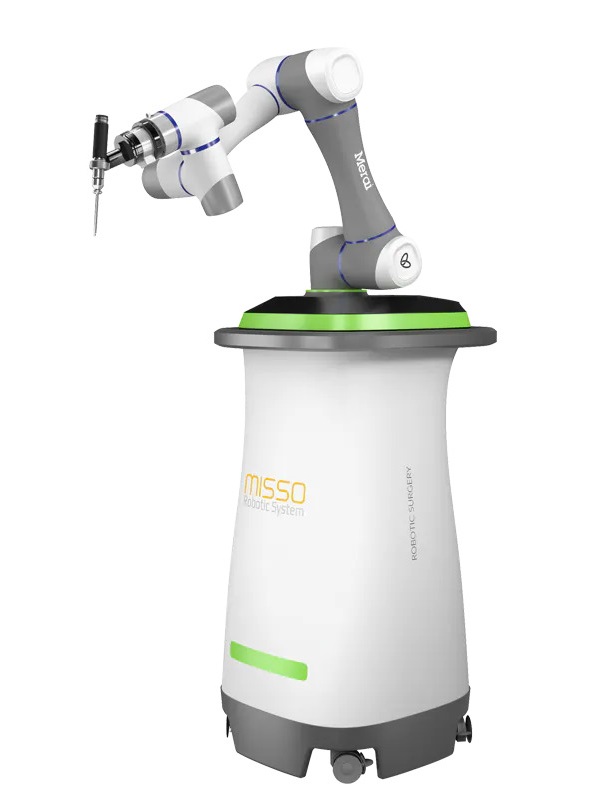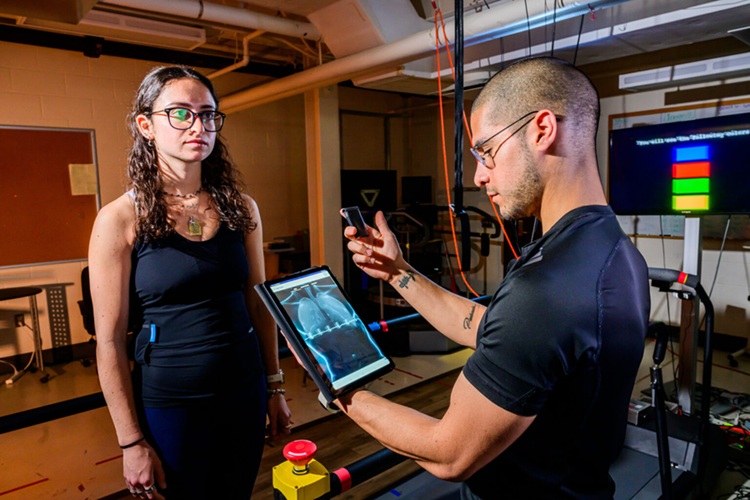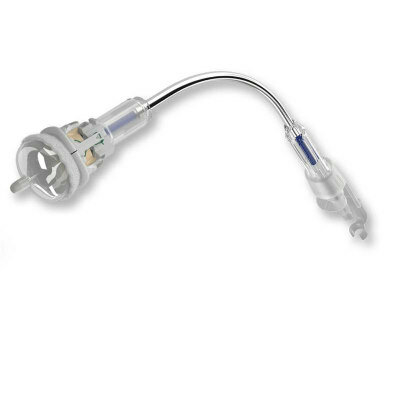First-Of-Its-Kind Surgical Robotic Technology Provides Real-Time Assistance during Knee Replacement Procedures
|
By HospiMedica International staff writers Posted on 21 Jun 2024 |

Robotic systems provide valuable, objective data before surgery, enabling personalization and customization to meet the specific needs of each patient, thereby significantly enhancing satisfaction after the procedure. An advanced surgical robotic system now aids surgeons by offering personalized pre-planning and precise cutting, ensuring predictable and consistent outcomes in joint replacement surgeries.
Meril Life Sciences (Gujarat, India) has introduced the MISSO Robotic System, an indigenously developed surgical robotic technology that supports surgeons during knee replacement surgeries by providing real-time assistance. The MISSO system is equipped with an optical tracking sensor, a 6-axis articulated robotic arm, and advanced safety sensors. It enables sub-millimeter precision in cutting and combines computer-assisted navigation with robotic assistance to achieve accurate alignment and shaping of knee joint components. The MISSO Robotic System enhances safety by automatically stopping if bone movement exceeds 4mm, while its autonomous features reduce the need for human intervention, thus minimizing infection risks. Additionally, the system allows surgeons to perform real-time gap checks and make intra-operative modifications to the surgical plans.
This robotic system uses 3D CT scans to create personalized surgical plans that ensure optimal implant placement and alignment, tailored to the unique anatomy of each patient. The integration of AI within the system slashes pre-operative planning time by 83% and enhances the personalization of procedures, leading to improved surgical outcomes and a lower risk of complications. The robot boasts a 98% success rate and is particularly suitable for smaller hospitals due to its minimal footprint in the operating room compared to other robotic systems. The technology, which can be adapted for other types of joint surgeries in the future, is expected to soon receive CE and USFDA approvals.
Related Links:
Meril Life Sciences
Latest Surgical Techniques News
- Intravascular Imaging for Guiding Stent Implantation Ensures Safer Stenting Procedures
- World's First AI Surgical Guidance Platform Allows Surgeons to Measure Success in Real-Time
- AI-Generated Synthetic Scarred Hearts Aid Atrial Fibrillation Treatment
- New Class of Bioadhesives to Connect Human Tissues to Long-Term Medical Implants
- New Transcatheter Valve Found Safe and Effective for Treating Aortic Regurgitation
- Minimally Invasive Valve Repair Reduces Hospitalizations in Severe Tricuspid Regurgitation Patients
- Tiny Robotic Tools Powered by Magnetic Fields to Enable Minimally Invasive Brain Surgery
- Magnetic Tweezers Make Robotic Surgery Safer and More Precise
- AI-Powered Surgical Planning Tool Improves Pre-Op Planning
- Novel Sensing System Restores Missing Sense of Touch in Minimally Invasive Surgery
- Headset-Based AR Navigation System Improves EVD Placement
- Higher Electrode Density Improves Epilepsy Surgery by Pinpointing Where Seizures Begin
- Open-Source Tool Optimizes Placement of Visual Brain Implants
- Easy-To-Apply Gel Could Prevent Formation of Post-Surgical Abdominal Adhesions
- Groundbreaking Leadless Pacemaker to Prevent Invasive Surgeries for Children
- Spectroscopy Technique Improves Surgery for Pediatric Epilepsy Patients
Channels
Critical Care
view channel
Novel Intrabronchial Method Delivers Cell Therapies in Critically Ill Patients on External Lung Support
Until now, administering cell therapies to patients on extracorporeal membrane oxygenation (ECMO)—a life-support system typically used for severe lung failure—has been nearly impossible.... Read more
Generative AI Technology Detects Heart Disease Earlier Than Conventional Methods
Detecting heart dysfunction early using cost-effective and widely accessible tools like electrocardiograms (ECGs) and efficiently directing the right patients for more expensive imaging tests remains a... Read more
Wearable Technology Predicts Cardiovascular Risk by Continuously Monitoring Heart Rate Recovery
The heart's response to physical activity is a vital early indicator of changes in health, particularly in cardiovascular function and mortality. Extensive research has demonstrated a connection between... Read more
Wearable Health Monitoring Device Measures Gases Emitted from and Absorbed by Skin
The skin plays a vital role in protecting our body from external elements. A key component of this protective function is the skin barrier, which consists of tightly woven proteins and fats that help retain... Read morePatient Care
view channel
Portable Biosensor Platform to Reduce Hospital-Acquired Infections
Approximately 4 million patients in the European Union acquire healthcare-associated infections (HAIs) or nosocomial infections each year, with around 37,000 deaths directly resulting from these infections,... Read moreFirst-Of-Its-Kind Portable Germicidal Light Technology Disinfects High-Touch Clinical Surfaces in Seconds
Reducing healthcare-acquired infections (HAIs) remains a pressing issue within global healthcare systems. In the United States alone, 1.7 million patients contract HAIs annually, leading to approximately... Read more
Surgical Capacity Optimization Solution Helps Hospitals Boost OR Utilization
An innovative solution has the capability to transform surgical capacity utilization by targeting the root cause of surgical block time inefficiencies. Fujitsu Limited’s (Tokyo, Japan) Surgical Capacity... Read more
Game-Changing Innovation in Surgical Instrument Sterilization Significantly Improves OR Throughput
A groundbreaking innovation enables hospitals to significantly improve instrument processing time and throughput in operating rooms (ORs) and sterile processing departments. Turbett Surgical, Inc.... Read moreHealth IT
view channel
Printable Molecule-Selective Nanoparticles Enable Mass Production of Wearable Biosensors
The future of medicine is likely to focus on the personalization of healthcare—understanding exactly what an individual requires and delivering the appropriate combination of nutrients, metabolites, and... Read more
Smartwatches Could Detect Congestive Heart Failure
Diagnosing congestive heart failure (CHF) typically requires expensive and time-consuming imaging techniques like echocardiography, also known as cardiac ultrasound. Previously, detecting CHF by analyzing... Read moreBusiness
view channel
Expanded Collaboration to Transform OR Technology Through AI and Automation
The expansion of an existing collaboration between three leading companies aims to develop artificial intelligence (AI)-driven solutions for smart operating rooms with sophisticated monitoring and automation.... Read more















